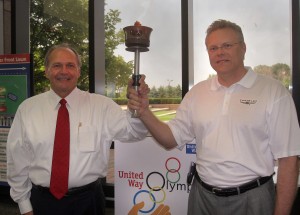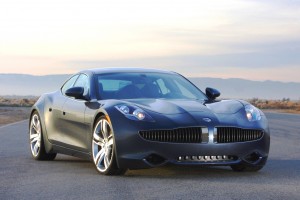While there are plenty of skeptics still waiting for start-up Fisker Automotive to prove it has staying power the California-based plug-in hybrid manufacturer is winning over some well-known names like former Chrysler CEO Tom LaSorda.
The Canadian-born executive, who left Chrysler before its 2009 bankruptcy, will join Fisker as the maker’s new vice chairman and chairman of its Strategy Council. He will be joined by Richard Beattie, a long-time Ford senior executive who will now become Fisker’s new Chief Commercial Officer, overseeing marketing sales and customer service.
The fledgling automaker recently launched three versions of its plug-in hybrid sports coupe, including the Fisker Karma. The maker this week announced that it is raising the price of the sleek battery vehicle to $102,000, nearly 30% more than it originally projected. The high-end EcoChic version, meanwhile, will jump to $116,000.
LaSorda is a well-regarded manager who spent 23 years at General Motors before jumping to Chrysler in 2000. He helped steer the maker during some of its roughest moments – through the splintering of DaimlerChrysler AG and the U.S. maker’s sale to equity giant Cerberus Capital, and then Chrysler’s preparation for bankruptcy and its subsequent takeover by Italy’s Fiat.
Since leaving Chrysler LaSorda has served as co-founder and partner in the Michigan-based Venture Capital firm Stage 2 Innovations.
“We are delighted to welcome Tom to the leadership team of Fisker Automotive,” said Fisker Automotive co-founder and CEO Henrik Fisker. “The company is entering a new stage of growth, to which Tom’s strategic vision and experience will be vital. His appointment sends a strong statement about the future direction of Fisker Automotive as it becomes a global car company.”
As for Beattie, a dedicated amateur pilot, he spent his career working at Ford – including a stint with some of the European luxury brands that were briefly consolidated as the American maker’s Premier Automotive Group. That included five years, starting to 2002, running sales and marketing at Jaguar Land Rover North America. Beattie shifted to Jaguar alone in 2009, and retired from Ford a year later.
“His experience in the premium car sector will be crucial as we continue to reach new customers in both Europe and Asia,” said Henrik Fisker.
The latest executive appointments are clearly aimed at not only adding business acumen to the start-up but also boosting the credibility of the company, which hopes to go up against industry giants like General Motors and Toyota with technology that is anything but a sure bet. All told, hybrids, plug-ins and pure battery-electric vehicles, or BEVs will account for barely 2% of the U.S. market for all of 2011.
Fisker was founded by Danish Henrik Fisker, a former Aston Martin and Ford designer. It is initially focusing its attention on the Karma coupes and its convertible and wagon spin-offs. The vehicles are designed to operate initially on electric power alone then switch to gas power when its batteries run down.
Fisker has told TheDetroitBureau.com that he focused initially on a high-end sports car because it would likely generate more attention – and because buyers for this type of vehicles are less price-sensitive. That’s something that will be tested by the latest price increase. The original 2008 plan was to sell the Karma for just $80,000.
The Karma has had other setbacks, notably news that it only got an EPA rating of 52 Miles Per Gallon-equivalent, or MPGe, and 20 MPG on gas alone, substantially less than the company had promised. (The European ratings agency, TUV, however, gives the vehicle a significantly higher 112 MPGe rating.)
Meanwhile, there are plenty of skeptics questioning the company’s ability to follow up with a more mainstream model, codenamed Project Nina, which has been repeatedly pushed back and likely won’t reach market until 2013.
The maker insists it is on track, however, and has a $528 million low-interest loan from the Department of Energy to help it move forward.
Fisker has recruited a number of auto industry veterans, both at the management, design and engineering levels. But the company has also reached out beyond the industry, signing on board members including Home Shopping Network CEO Mindy Grossman.


